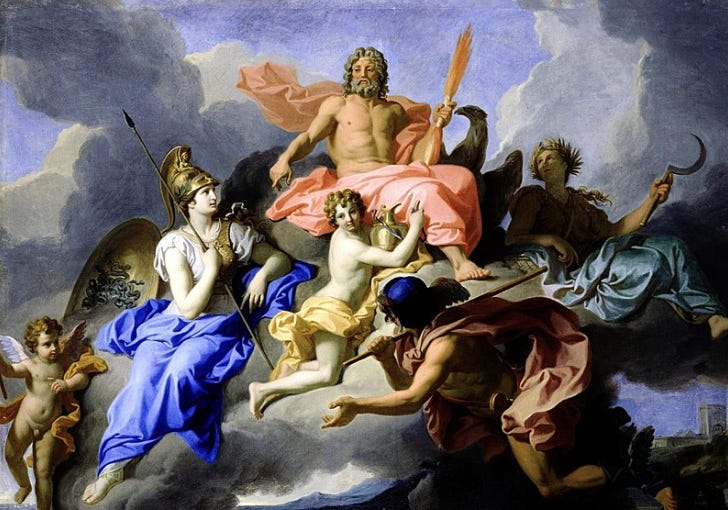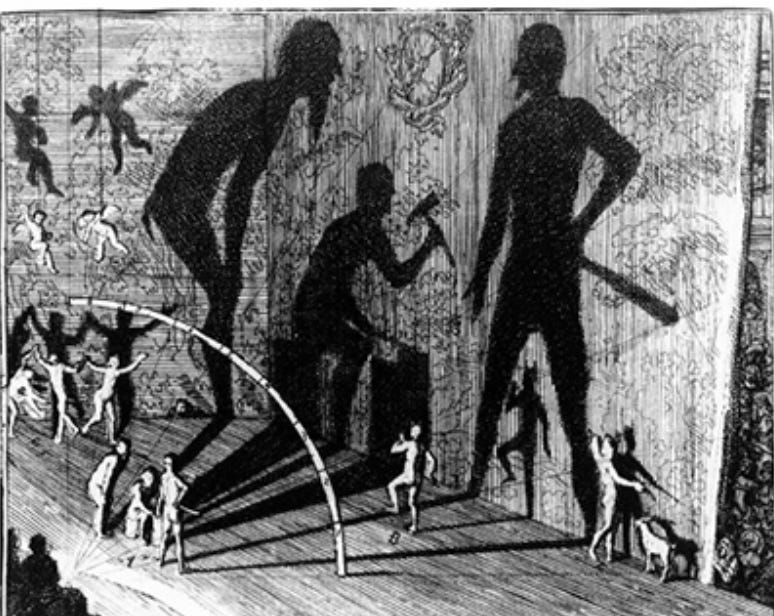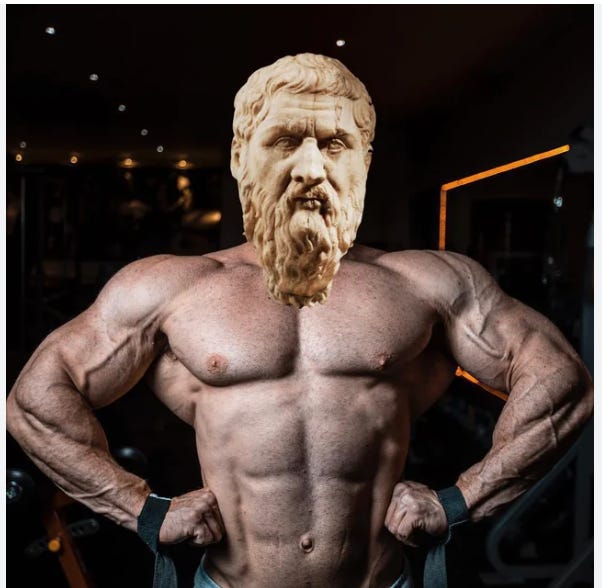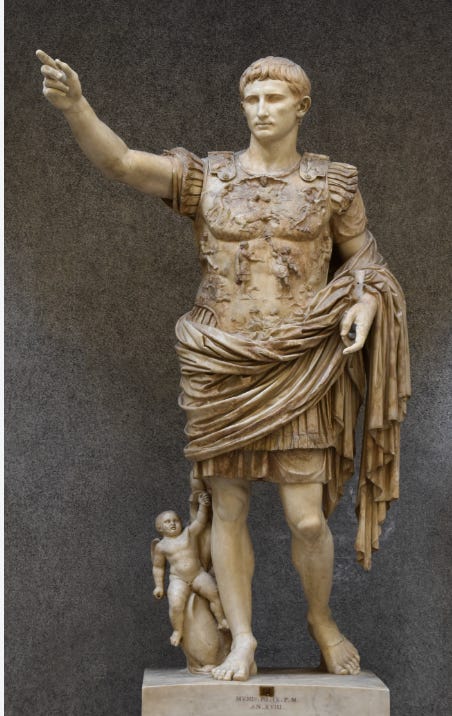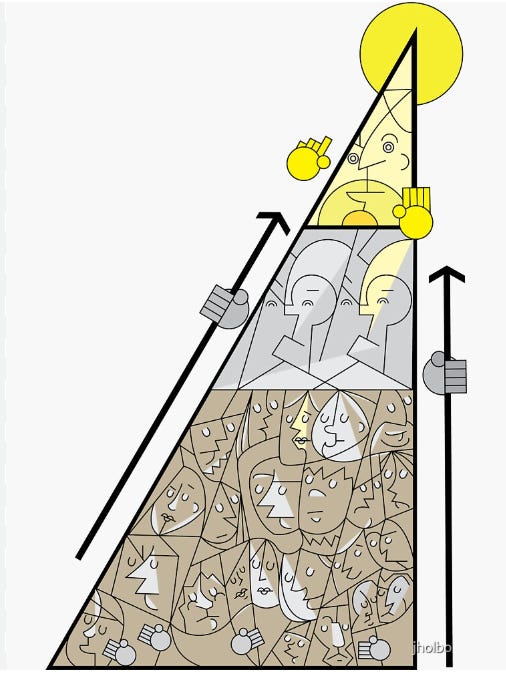Plato's Republic, Book 3 | Education & The Noble Lie
Essay on Book Three of Plato's Republic
Overview of Book Three
Book three of Plato’s Republic has five main parts:
The critique of Greek literature and drama
The Critique of Imitation
The educational program; music and physical training
The rulers
The Noble Lie, also known as the Myth of the Metals, which is a kind of caste system that Plato sets up for this ideal city based on these three classes
1. Critique of Greek Drama & Literature
For Plato education is the number one political issue. In other words, how you train people and what you think people should be defines what your city is going to be?
Plato had many critiques of his own city of Athens, which was educated by Homer (the author of the Iliad and the Odyssey). He blamed Homeric education for their many moral failings. So in Book Three, he's going back to scratch and criticizing the Homeric myths that are the origins of the kind of Greek moral system and trying to reestablish it on a new foundation aka Socrates.
It’s important to note that this education system is not something to be realised in the real world, like the whole city in speech. The education system is a moral or ethical standard that is to be used to measure the offline culture and education, like a yardstick! At times his recommendations and questions might seem strange, like criticizing stories or imitations, but what he is doing is setting up a moral standard by which the city can be evaluated, and eventually the psyche itself in Book Four.
A big part of Plato's critique of Homer is that the old model for what a man should be, the Homeric ideal, was Achilles. Achilles is the perfect warrior, he's the guy that when the chips are down and the Trojans are winning he can come in and kill everybody. But he’s also proud, hubristic, hotheaded, and impulsive. Throughout the whole of the Republic Plato is critiquing Achilles as the Homeric ideal, this kind of Warrior King model and trying to replace that model with Socrates. Socrates is not dissimilar to Achilles in the Platonic dialogues, he wins all his arguments and could out-think anybody, but he’s importantly a ‘philosopher king’ rather than a ‘warrior king’. He excels not only in battle but in love for the truth.
His first critique is that Homer represents Evil characters in his stories that prosper. In other words, characters do evil in Homer’s stories and get rewarded for it. Starts out by critiquing Homer, that he represents evil characters that prosper. One example he gives of this is that Homer depicts the underworld as a terrifying and horrible place, which creates a fear of death for soldiers. So in Plato’s perfect city, the underworld will be depicted as a great place, something like an Elysian field where soldiers who are brave and who are honorable are rewarded after death so that they won't be afraid to die in battle. Slightly morally questionable, you know, lying to your soldiers to get them to go out and get themselves killed…
Basically throughout the critique Plato is taking the Greek stories and he's reframing them based on morality, what's called 'poetic justice'. Poetic Justice is where in the stories virtue triumphs over the vice and vice is punished usually in a kind of ironic way, relevant to the type of vice that's committed. For example, in Dante’s Inferno when the lustful are swept around in a tornado for all eternity, out of control in death like they were in life. Whereas for Homer, Zeus was the king of the Gods but would often turn into a swan and assault women and do terrible things but would still be the king of the gods! In that sense, Zeus and the other Olympians are not moral exemplars. So Plato is trying to re-establish his culture and art based on solid morality and he’s super concerned with this topic because he thinks our moral training starts with our stories, which is what we will discuss next.
2. The Critique of Imitation
In 393C, Plato critiqued imitation itself, which is a really weird argument when you read it! Essentially he argues that if a poet is writing a poem, which would be like a story for us, the poet shouldn't pretend to be the character that they're writing about. That the poet should say,
“Hey, I'm a person writing about this and I'm not a God, or I'm not this, character.”, which is really weird because Plato is literally imitating Socrates in this passage when he's writing this critique of Mimesis (imitation)! It's a really strange critique to modern ears, but I think behind it is this idea that we should only imitate: good things.
Kurt Vonnegut, the American writer, said "We are what we pretend to be, so we must be careful about what we pretend to be." I think Plato is really picking up on this, which is that we don't just imitate people in real life. We imitate them in stories, and then if you write from the perspective of somebody, you take on that perspective and then you pass that perspective on to the people that inhabit that art as well. So I don't think he's saying we shouldn't create art or we shouldn't imitate at all, but rather, we should only imitate the good because if we imitate the bad, in some sense, we're scaling that for other people to do it. Plato looks at this as the degradation of Greek society, that the more you do this, the more we imitate bad people the worse it gets.
We have actually an interesting example of this in our own society with social media algorithms. Success on social media translates to success offline so people who are good at hacking the algorithm like Mr. Beast or something, become very popular and very successful. But then because of their popularity and success, other people then start to imitate those successful creators and so you end up with this kind of mimetic process of imitation that's been defined by the preferences of the technology, which are really the preferences of the company.
In a recent book, cognitive Gadgets, Oxford Psychologist Cecilia Hayes writes that we imitate high-status people. We imitate those who are successful and above us in order to try and become successful like they are. Human beings are much more imitative even than our near cousins chimpanzees and apes. We really imitate in order to bootstrap ourselves to the next level. So I think Plato is aware of this imitation problem, and so he's really saying culturally, we should be very careful of the people that we make successful and high status because they're really gonna define where the society is going. Jake Paul and I show speed is essentially defining the next generation, which is, I don't know, pretty terrifying?
3. The Educational Program
So after we've dealt with the problem of stories and with imitation, Socrates and the lads have agreed that stories are only gonna be told about good people with virtues that you should emulate. We can then move on to a more detailed account of what this educational program is gonna look like for the Guardian class. If you're-call in book two, Socrates set up two classes, a producer class, farmers and shop-keepers etc, and a guardian class of professional warriors to protect the city. In this section, we will focus on the training of these guardians.
The educational program is two-fold: music and gymnastics. Music in this sense stands in for all learning in the arts and humanities and gymnastics for all physical training. He thinks that too much physical training will make you savage. Too much music and poetry makes you soft. So you need a mix of both. You need the warrior training and the kind of literary artistic training to get a well-rounded person that counterpoises each other. Music trains the mind, and physical training, and shapes the body. The goal of the educational program is to shape the overall soul of the individual. That's really it. It's a moral education that shapes the whole of the person.
Socrates thinks of character musically, which is very interesting, that the music training is going to lead students to harmonious living. He looks at excessive desires, as like rhythms and harmonies that you don't want in your life, or rhythms or disharmonies. He uses the example of excessive sexual desire as getting you out of alignment. It's like a note that's played too much in an orchestra and so unbalances the whole unison of the orchestra harmonizing together. Plato has an account of a person as being made of many parts and so justice, which we'll discuss later, is a kind of inner harmony between all of these parts. Therefore excessive desires, disordered desires, and our emotions upset this inner harmony and rhythm and lead to vice essentially, and the corruption of character. So the point of musical education is to promote balance, harmony, self-discipline, and really living well, but to live well is to live musically. The end of this training in music and poetry is that one ought to love the fine and the beautiful. Excessive love of things like sexual desire or money kinds of idolatry really leads to a disordered way of living, a disordered harmony. The music training teaches you to love what's fine and beautiful, true and good and that's the best way to live.
The other half of the educational program, after training the mind with music and stories, is that the body has to be trained. And Plato's pretty clear here. He recommends a kind of Spartan training regime. He argues that we won't need medicines if we're gonna be fit and healthy. People should be concerned with training physically and doing physical labor so that they won't become slovenly and disordered and that won't lead to vice and the collapse of the state. He does argue against excessive care of the body, that the health overall of the soul is more important than the health of the body.
You should prioritize your character more over your body. I'm thinking again, of a lot of Instagram. People who wanna just look really good. And once I look good, that's enough. Even if you take anabolic steroids and you become a terrible person and you're angry and violent, it's like you might look physically really good, but your character is falling apart. Plato's saying essentially that character is far more important than how your body looks, So by 410C, we really have an overview of this educational program which is really about a counterbalance. It's a moral education that's meant to create harmony between the different parts of the person.
4. The Rulers
Now that we have the educational program laid out for the Guardian class, which is the warrior class in this training, you'll identify the best of the best; the Masters of music and poetry and physical training. The best guardians will be picked out and become the rulers of the city. These special elite guardians will be the highest class in the city but certainly aren’t a pampered luxury class. Plato poses a series of tests for them, tests of strength, tests of wit and hardships for the future guardians. There's always this question of, who watches the watchmen?
If you have dictators, if you have tyrants, if you have people in charge who's in charge of them essentially, and Plato wants this educational program to be in charge of that. He thinks if you educate them properly, they'll be subject to the values and truths that they learn in their education, the musical way of living, and that this will. Filter down that they'll be the best the best of the best in the education, and therefore the best and the best in ruling. He adds other constraints to them as well in that they're meant to be aesthetics. They're not paid, and they can't own property. 'cause all of these things hold the potential to corrupt the governors and the rulers into becoming oligarchs or tyrants.
And so Plato really wants to avoid that because he wants these rulers to be philosopher kings, which will really get into by chapter five, where we go into detail about the philosopher kings who are really meant to know the truth. The rulers are really meant to be lovers of truth and lovers of wisdom, which is a very interesting kind of aristocratic leader that Plato proposes.
5. The Noble Lie and Caste System
With the rulers now, we have three classes. We have the producer class at the bottom, we have the warrior class in the middle, and then we have this ruler class at the top. So three classes in this platonic ideal society. With these three classes, Plato proposes a founding mythology for the ideal city. Basically, you're gonna tell them a story and you're gonna tell them this story to bind them together so they don’t fight and get along and form a harmonious society.
The story is that they're all born from the ground and hence all related to one another. So they all have a shared origin essentially, and when they're born from the ground, each has a bit of metal in their soul. Some have gold metal, some have silver, and some have bronze. The gold ones are gonna be the rulers, the silver ones are gonna be the warriors, and the bronze ones are going to be producers.
It's important to say, the Greeks don't believe in equality. Equality wasn't a Greek thing at all. This is why they invented the Olympics. The Greeks are all about the best, and they assume a natural inequality. Probably Plato's biggest weakness, I would say is his kind of, it assumed inequality of people. He couldn't dream up the Judeo-Christian origin of story of everybody being made in the image of God. Although he does get closer than anybody else got in his civilization. But for the Greeks, inequality is assumed. It's assumed some people are gonna be slaves, some people are gonna be masters. Some people are gonna be the best, so people aren't. So this aristocratic society would've made more sense in their society than to our modern ears.
Plato doesn’t recommend actually doing this, but the noble lie is a part of the thought experiment of the city itself. This is the founding mythology of the city, and you're gonna raise the three classes up with this mythology for peace and harmony. This is why it's called the Noble Lie because, if you could tell this lie to have this kind of absolute societal order and harmony, would it be worth doing? He’s asking the question, would this story be a solution to problems like tribalism, feuds, classes etc? Which were big problems for his own city in ancient Athens. In having this origin story of a shared origin together shared roles that you play in society that are essentially fixed with some small movement between classes (you could have a silver that's born to the bronze class or you could have a gold that's born to a silver family, and then in which case they need to move up or down). Because if you think about it within the training it's actually really rooted in their personality, in their character, into what jobs they're actually suitable for.
The noble lie experiment is Plato's way of making sense of the ideal order of society. And if you remember what we said before, which is once you have a perfect society, any change is degeneration. So once you have perfection, if you change perfection, it can only get worse! So Plato's trying to make in his mind the perfect society, which is this aristocratic thing and if it’s really perfect, then he doesn't want it to change. He wants it to be solid. Our idea of meritocracy, people moving up and down, doesn’t make sense if people are already perfectly placed. Again, this society isn't meant to be realized in reality, but is meant to be an image, a standard, a normative measure, which we can employ to understand reality.
An important feature of the Noble Lie is that Plato demotes, the Homeric heroes like Achilles to silver. And then moves the masters of Education, the philosopher kings, and the rulers to the top. So he's really done that move of where he is putting Socrates above Achilles here. From this kind of three-tiered society structure later, Plato will define all of the other political structures that he pulls out. Aristocracy, which is where gold rules silver. Timocracy, which is where silver rules above everybody else oligarchy, which is where bronze rules democracy, which is where everybody's just on a flat plane, and then tyranny is the bronze, the person of desire who is just in charge of everything else. So this is really a very ingenious system that Plato lays out that will help us understand not just the other political situations, but this is also where we get the tripartite psyche from that we're gonna see in chapter four.


